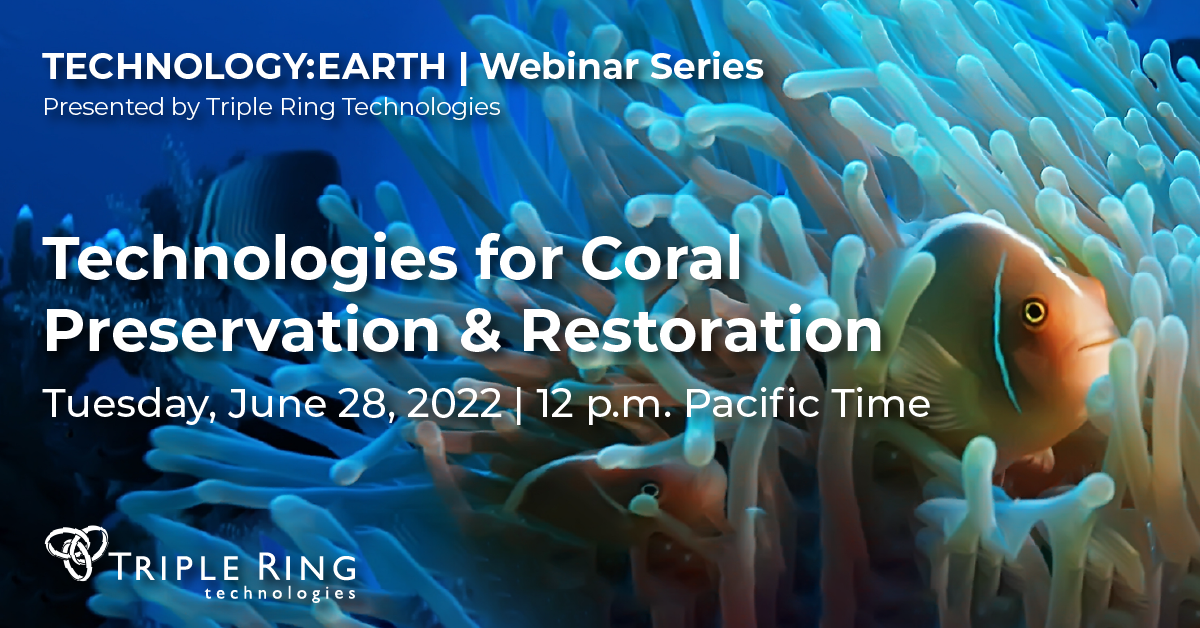
Watch the Recorded Webinar Now!
Improving human health through technology drives us at Triple Ring Technologies. Today, we recognize that human health is not supportable without a healthy planet. Ensuring a healthy environment for current generations and sustainable management of our planetary resources for future generations is a natural extension of our mission. Triple Ring is pleased to announce that we are expanding our practice into technologies for the environment and sustainability.
Our new Technology: Earth webinar series will convene world experts and technologists working on a variety of environmental challenges to frame the problems and the challenges of scale-up, and to discuss viable solutions. Our goal is to connect individuals working in these problem spaces with the innovation ecosystem that that has successfully delivered life-changing solutions in the biotech space.
Our series will start in the ocean, on technologies for coral restoration & preservation. In addition to supporting diverse ecosystems, reefs play an important role in protecting coastlines against storms and erosion, and support economies around the globe through both tourism and fishing. Coral ecosystems worldwide are under unprecedented stress, in which rising ocean temperatures, increased acidification, bleaching events, and the rapid spread of new pathogens will threatening over 90% of the world’s reefs by 2030. Coral species preservation ensures that the rich biodiversity of the world’s coral is preserved for future restoration efforts, that can happen at larger scale than is currently possible.
Our speakers will frame the global coral restoration challenge, and will provide examples of both bespoke and adapted technologies. These ultimately range from off-the-shelf products to advanced cryopreservation systems – that were developed and applied when technologists and coral scientists came together to define the problem and solutions.

